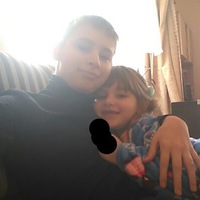
Помогите пожалуйста,срочно !!!!!!! что помешало раскольникову жить по теории,созданной им?
 0
0
 0
0
Ответы на вопрос
 Внимание! Ответы на вопросы дают живые люди. Они могут содержать ошибочную информацию, заблуждения, а также ответы могут быть сгенерированы нейросетями. Будьте внимательны. Если вы уверены, что ответ неверный, нажмите кнопку "Пожаловаться" под ответом.
Внимание! Ответы на вопросы дают живые люди. Они могут содержать ошибочную информацию, заблуждения, а также ответы могут быть сгенерированы нейросетями. Будьте внимательны. Если вы уверены, что ответ неверный, нажмите кнопку "Пожаловаться" под ответом.

 0
0
 0
0

The Factors that Hindered Raskolnikov from Living According to His Theory
Raskolnikov, the protagonist of Fyodor Dostoevsky's novel "Crime and Punishment," formulated a theory that divided people into two categories: ordinary individuals and extraordinary individuals. According to his theory, extraordinary individuals, who possess exceptional abilities and intellect, are not bound by conventional moral laws and are justified in committing crimes for the greater good. However, several factors hindered Raskolnikov from living according to his theory.
1. Guilt and Conscience: Raskolnikov's theory allowed him to rationalize his plan to murder the pawnbroker, Alyona Ivanovna, as an act of extraordinary will. However, after committing the crime, he was overwhelmed by guilt and haunted by his conscience. The weight of his actions and the moral implications of taking a life prevented him from fully embracing his theory.
2. Psychological Turmoil: Raskolnikov's theory was not able to shield him from the psychological consequences of his actions. He experienced intense inner turmoil, including anxiety, paranoia, and hallucinations. These mental disturbances made it difficult for him to live according to his theory and maintain a stable state of mind.
3. Isolation and Alienation: Raskolnikov's theory emphasized the separation between ordinary and extraordinary individuals. As a result, he isolated himself from society and distanced himself from his family and friends. This self-imposed isolation further contributed to his inner turmoil and prevented him from fully living according to his theory.
4. Moral Awakening: Throughout the novel, Raskolnikov undergoes a moral awakening. He begins to question his theory and the validity of his actions. As he interacts with other characters, such as Sonya Marmeladova, he starts to recognize the importance of empathy, compassion, and the interconnectedness of humanity. This moral awakening challenges his theory and prevents him from fully embracing it.
5. Consequences and Punishment: Ultimately, Raskolnikov's theory fails to shield him from the consequences of his actions. He is pursued by the relentless investigator, Porfiry Petrovich, and faces the possibility of being caught and punished for his crime. The fear of punishment and the realization that his theory did not provide him with the freedom he sought further hindered him from living according to his theory.
In conclusion, Raskolnikov's theory, which divided individuals into ordinary and extraordinary categories, was hindered by factors such as guilt, psychological turmoil, isolation, moral awakening, and the fear of consequences. These factors prevented him from fully embracing his theory and living according to its principles.
Note: The information provided above is based on the analysis of the novel "Crime and Punishment" and does not reflect real-life situations or theories.
 0
0
 0
0
Топ вопросов за вчера в категории Литература
Последние заданные вопросы в категории Литература
-
Математика
-
Литература
-
Алгебра
-
Русский язык
-
Геометрия
-
Английский язык
-
Химия
-
Физика
-
Биология
-
Другие предметы
-
История
-
Обществознание
-
Окружающий мир
-
География
-
Українська мова
-
Информатика
-
Українська література
-
Қазақ тiлi
-
Экономика
-
Музыка
-
Право
-
Беларуская мова
-
Французский язык
-
Немецкий язык
-
МХК
-
ОБЖ
-
Психология
-
Физкультура и спорт
-
Астрономия
-
Кыргыз тили
-
Оʻzbek tili




















